November 14, 2023
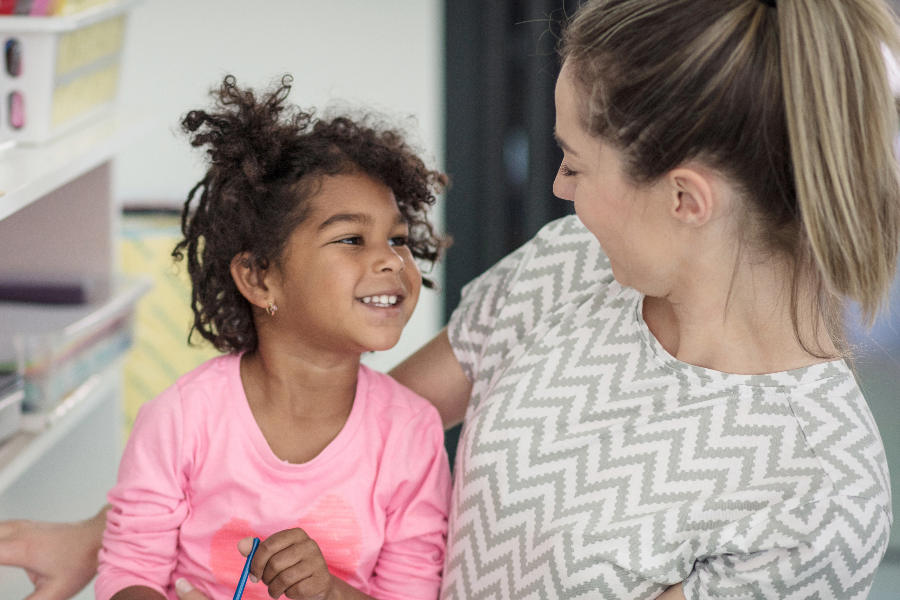
It can be difficult to find the right words when helping kids navigate scary or hard topics. Learn how to have empowering and honest conversations with guidance from a mental health expert from The Family Centre.
The world can be a scary, complex, and tough place. As much as we’d like to shield them from it, kids eventually notice and turn to trusted grownups for guidance.
Talking with kids about tough and scary topics can be challenging, but it’s important to approach these conversations with care, curiosity, and honesty. Creating a safe environment where they feel comfortable sharing their thoughts and feelings will help to foster trusting and open relationships now, and into the future.
 |
We chatted with Mark Frederick, a mental health therapist with The Family Centre.
The Family Centre is a United Way-funded partner that offers counselling, classes, in-school supports, and more to children and families in the Edmonton region. |
It’s important to keep in mind that every situation and every person is different, especially for those who are personally impacted by the topics at hand. If you’re in need of more specialized support, you can connect with 211 Alberta to find resources near you.
As a mental health therapist who works primarily with children and families, here are Mark’s recommendations on how to navigate these conversations with kids.
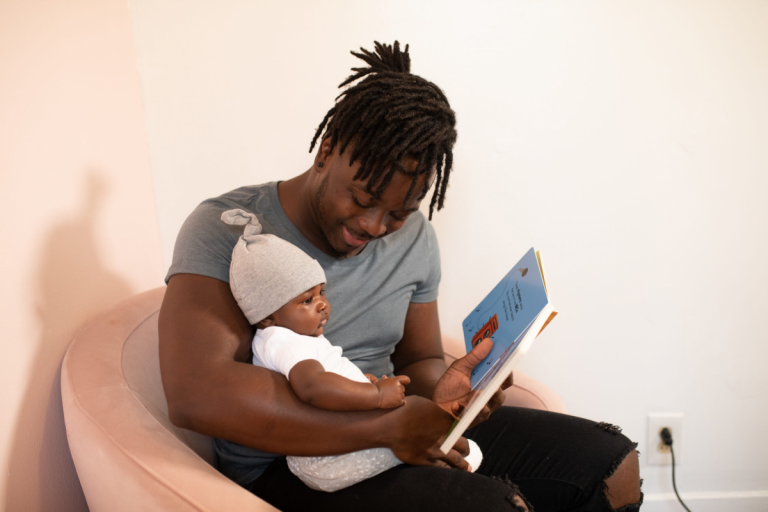
Mark recommends building foundations for conversations about tough topics by figuring out what you know — and what you don’t know — to make sure you aren’t caught off guard when a kid brings it up. It’s never too early to start having simple conversations with kids to activate their critical thinking skills.
“Instead of saying directly ‘This is racism’, ask questions like ‘Have you ever heard of someone being mean to another kid because of the colour of their skin?’,” he suggests.
While it’s important to plan ahead when approaching scary or challenging topics, Mark says it’s also critical to make sure the conversations are kid-led or at least have context or timing that kids understand. Bringing up a topic out of the blue can be very jarring for a child with no clues about why they need to learn about this now.
“Lots of kid books have been released in the last several years that go into conversations like these. Even simply making sure your kids’ books have a diversity of people depicted in them can go a long way to prepare to talk about these things when they come up.”
One of the things that a grownup can do to prepare themselves to deal with their own discomfort they have about the topic before talking about it with kids.
“If you want a kid to talk openly about something with you, you have to show them that that’s not uncomfortable for you as an adult. A kid is going to notice any hesitation and that’s going to tell them ‘Oh, I can’t talk about this with you.’”
In order to protect kids from scary or hard topics, grownups might feel the urge to tell kids that they are too young to worry about something, but Mark recommends against that tactic. Instead of being reassuring, it can feel dismissive to children — frankly, it’s not a great thing to say to adults either.
“Your kids are already thinking about it in that moment and you telling them not to think about it isn’t going to change that they’ve thought about it. Any time we dismiss the way a kid feels, what they’re thinking, or questions they have, we’re just teaching them not to try or that they can’t ask questions.”
If a kid brings up a topic in a way that doesn’t align with your own thoughts or values, Mark suggests using your discomfort to get curious about where the child heard or learned that—especially if there’s potential for misinformation to spread.
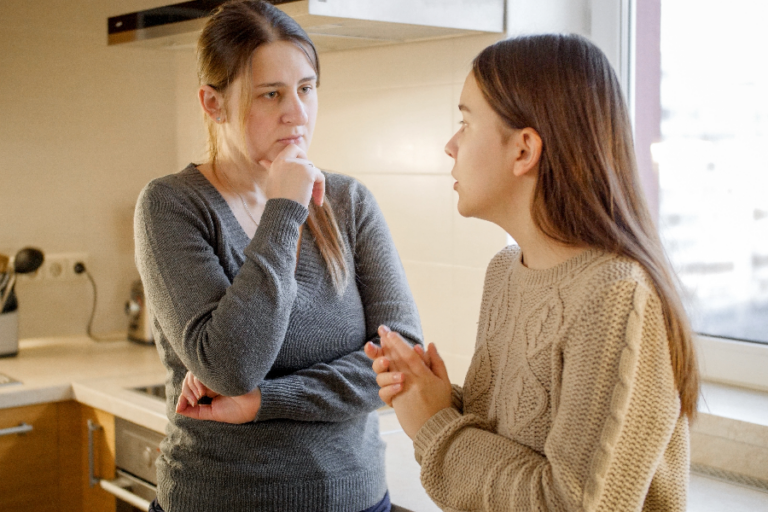
“If our kid says something that fundamentally goes against something we believe, we have the urge to correct it immediately,” Mark shares.
“But I’m always a fan of asking more questions instead of dictating ways of thinking, especially with older kids who are more likely to resist what you have to say. Your curiosity starts to teach them critical thinking and media literacy skills.”
Consider questions like:
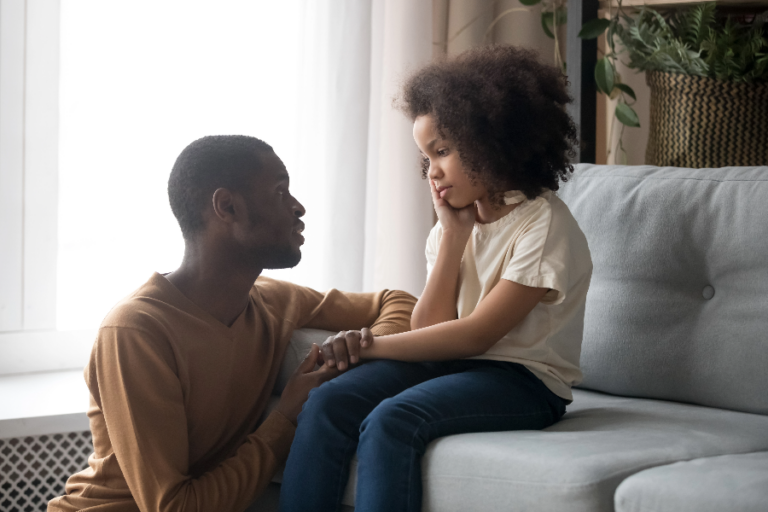
It’s a stereotype because it’s true: Kids love asking questions. Don’t hesitate to turn that natural curiosity around on them and ask what kids think or feel about a situation.
For example: Some people might think that having two dads is wrong. What do you think about it? What would you say? How would you feel?
“Approaching it by centering kids’ thoughts and feelings about it is really important because that allows them to feel like they can trust you with those thoughts and feelings when they do happen,” Mark explains.
And if you’re not ready to have a conversation at that time, Mark says it’s okay to be upfront with kids about that too.
“It’s perfectly fine to tell kids: I’m not too sure about this myself, maybe we can find out together,” he suggests.
“You’re showing the kid that what they are thinking and feeling is relevant and important to you, and you’re modelling that it’s OK to say, ‘I don’t know yet’ and that you can learn more about something you don’t know before you talk about it.”
Another reason grown-ups might want to avoid tackling tough subjects with kids is because it might make them more scared about the world than they were before. While we don’t want to deliberately scare kids, it is important to help them find ways to counter their fears through action and understanding.
“It’s my firm belief that it’s okay for kids to feel things, even bad things. We as adults in their lives can be there to support them in those feelings instead of trying to make them better or make them go away. Say that it’s okay to be scared about this and ask what you can do together to help them feel secure or safe right now. I think it’s important to allow kids to generate those things,” Mark explains.
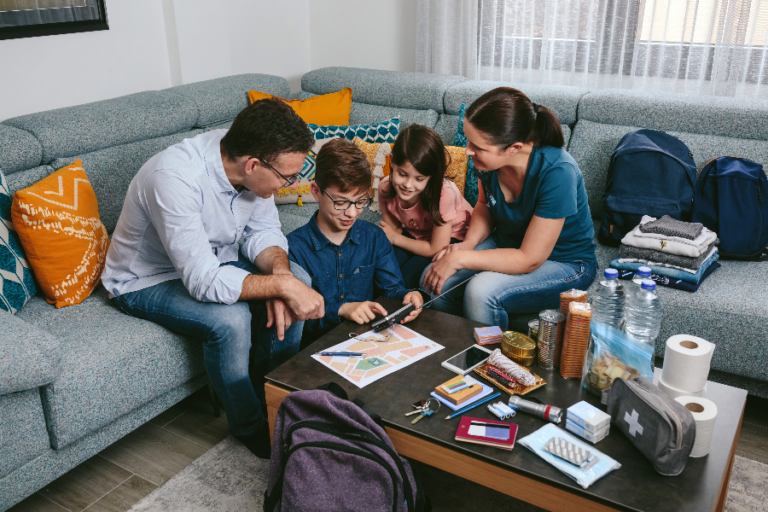
For instance, if a child is feeling nervous about forest fires, work on a plan together on what you would do in case of an emergency or evacuation. Point out the smoke detectors in your home and learn more about fire prevention. Teach them how to call 911, and what their address and grownup’s phone numbers are.
“Let kids know that these are the things that we are doing to try and make a difference, and work towards something better. That can feel really empowering both for adults and kids,” Mark says.
It can be difficult to find the right words when helping kids navigate scary or hard topics. Remember to listen actively, validate their feelings, and provide age-appropriate information. With patience, curiosity, and open communication, you can help children build critical thinking skills, foster empathy and understanding, and nurture a trusting relationship with the grownups in their lives.
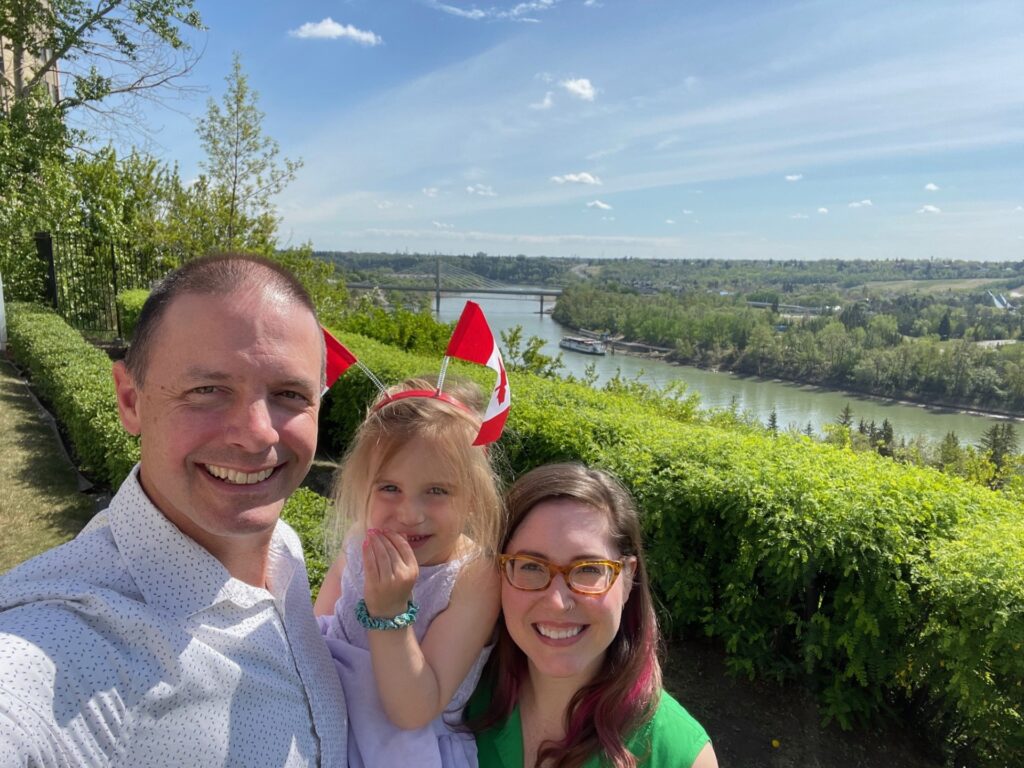
Jason Schauenberg, a proud ally and supporter of Women United, is helping pave the way for a more equitable future for his daughters.
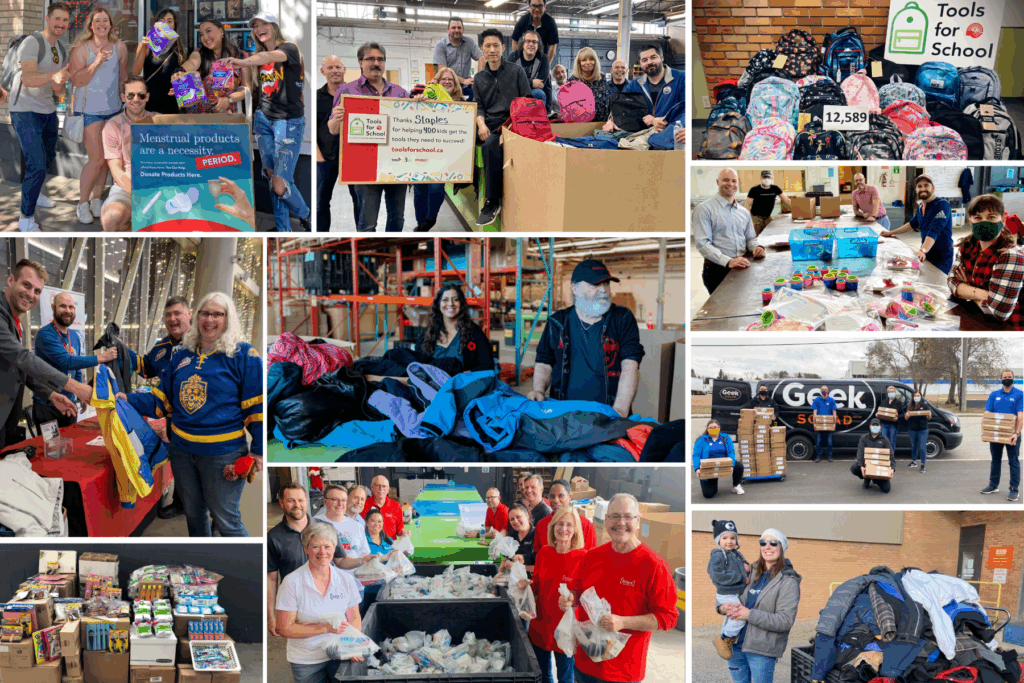
We're announcing some changes at United Way of the Alberta Capital Region. Learn how your impact will continue to make a difference as we evolve to create long-lasting change in our community.